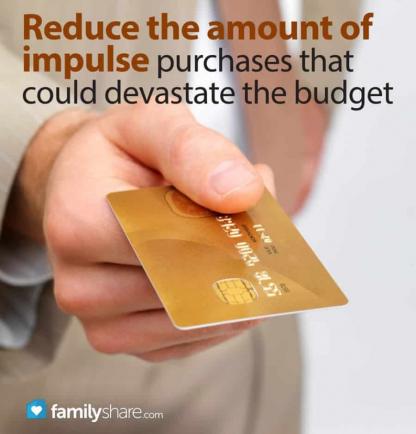
Sometimes in a marriage, one is a compulsive spender, and the other spouse finds him or herself in the regrettable position of being the "fun police."
This isn't a pleasant situation for either spouse. No one likes being the killjoy, and no one likes being reprimanded and made to feel guilty. At the same time, most budgets can't withstand unchecked spending. In some marriages, the situation feels like an impasse. What can you do?
Analyze the overspending. Is it mostly impulse buying? Perhaps, the two of you can agree on the rule to wait 48 hours before buying something exceeding a set price. Now that the immediacy of the moment has passed, give yourself time to think about the purchase and determine if it's something you truly want.
Many married couples have a set amount of money that cannot be spent before talking it over with their spouse. For example, some couples have agreed that any purchase over $100 has to be discussed before buying. Having an agreement in place will reduce the amount of impulse purchases that could devastate the budget.
No one wants to feel controlled or treated like a child, and building resentment between both partners will only lead to worse problems. If the spouses are both agreeable, they can set an amount that they are free to spend, per month, on anything, without judgment or being expected to offer an explanation, and no criticism is allowed. Sometimes people call this "fun money" or "blow money." This cuts down on fighting and hard feelings between partners and when followed, limits the amount of financial havoc a "shopaholic" can wreak per month.
Talk to your compulsive partner. People with this problem obviously make financial problems for themselves, but sometimes don't realize how much stress they are causing for their spouse. Help them recognize this in a non-attacking, loving way.
Occasionally, the spending is more than a bad habit - it's an outright psychological compulsion. The person may or may not even feel any need to use the items they buy. Sometimes the compulsion goes hand in hand with hoarding, and may need professional counseling to overcome. Others will resort to lying or stealing in order to cover up their problem. If this is your situation, seeking help is the first step. Even if you are not the compulsive spender, you may need to speak with someone to learn how to cope with the problem and handle the stress involved.

